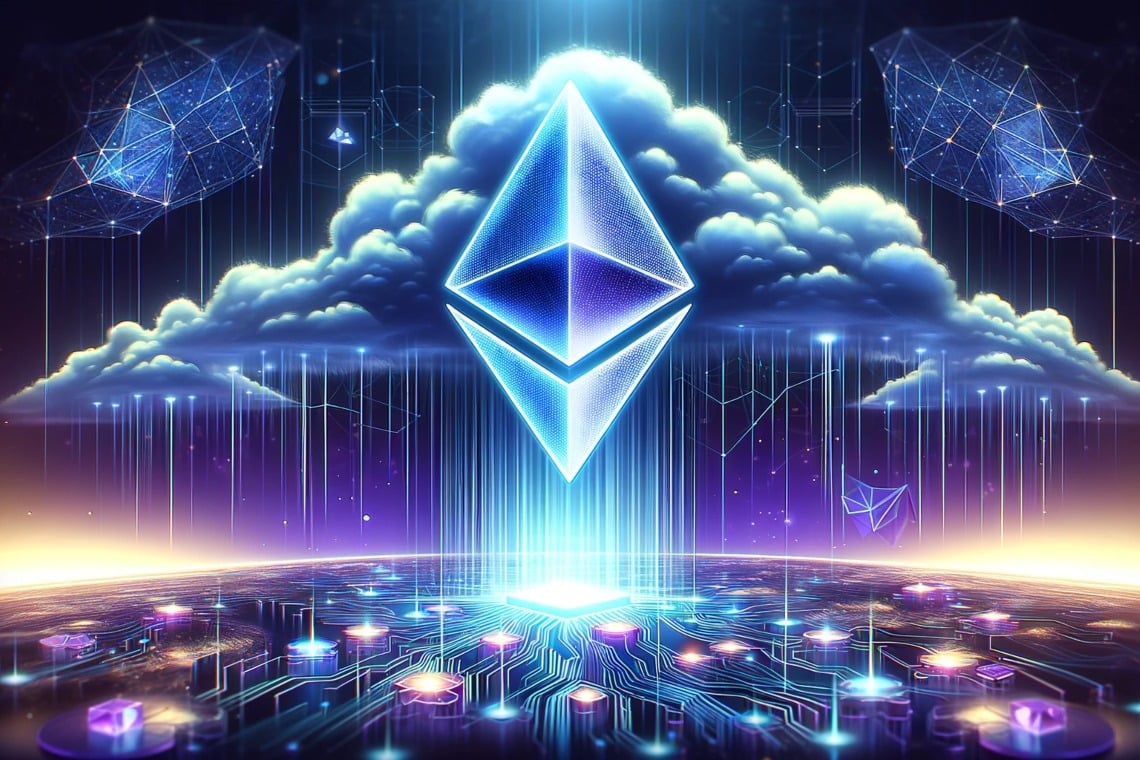After the success of the latest tests, the date on which the Dencun update will be applied to the Ethereum mainnet has been identified.
The update will be applied in slot 8,626,176 of epoch 269,568, and should therefore arrive on March 13th at 13:55:35 UTC.
Ethereum: the hard fork that will bring Dencun to the mainnet
It will be an actual hard fork of the Ethereum blockchain, although there is no expectation of a chain split.
Simply all Ethereum nodes from that moment will start using the new modified protocol that incorporates the changes made by Dencun, namely the EIP-4844.
In fact, this is not a minor update, but one that introduces new features that were not present until today.
The most interesting is the so-called proto-danksharding that lays the foundation for the future addition of the true danksharding.
Sharding is, in the long term, the main solution for scaling Ethereum, but the network is not ready yet. First, we will have to go through the proto-danksharding on March 13th, and then in the future for the danksharding.
With hard fork it is meant that the protocol is updated but the old one is no longer fully compatible with the new one. This happens when the update is significant and concerns fundamental structures of the protocol itself.
However, since there don’t seem to be any risks of someone refusing to update, there doesn’t seem to be a risk of a chain split either, that is, someone deciding not to update and continuing with the current protocol that is not compatible with the updated one.
The Dencun Update
All the Dencun update tests on Ethereum testnets have been successful or have brought to light identified and resolved issues.
This means that most likely the mainnet update should happen without major issues, as it has practically always been the case in recent years.
This update effectively starts the path that will lead, in a few years, to sharding, introducing proto-danksharding on layer-2.
Currently, layer-2 solutions, and in particular rollups, are the only true effective solution for scaling Ethereum and reducing fees.
In fact, it is only layer-2 transactions that allow for moving tokens at reduced costs, while on the Ethereum blockchain costs still remain quite high, despite the transition to Proof-of-Stake.
For this reason, first of all, we are working to make transactions even cheaper on layer-2, thanks to proto-danksharding, which allows compressing the data of the transactions themselves and storing a part of it separately in order to make them even lighter.
The cost of transaction fees depends on both the timing of the transactions and, above all, their byte weight, and a significant reduction in weight inevitably leads to a reduction in transaction costs.
In the future, this technology will also be brought to the layer-1, and in an even more distant future, in addition to danksharding, there will also be proper sharding that will further reduce costs.
The long-term consequences
Dencun will not only have short-term consequences on Ethereum and its layer-2, but probably also long-term consequences for projects like Celestia, Avail, and EigenDA.
In fact, it should help not only to reduce the cost of transactions, but also the data available on Ethereum, and this could particularly benefit those crypto projects that need to store data on Ethereum.
For some time now, a whole new world has been opening up based on the possibility of somehow making different blockchains interact with each other.
Sharding is effectively a long-term idea that also goes in this direction, namely that it allows different chains to communicate with each other.
The idea, which is also the basis of projects like Celestia, is not to have a single chain at the foundation of a network or ecosystem, but to be able to create infinite chains that are independent enough to keep transaction costs very low, but sufficiently connected to be able to communicate with each other.
Dencun opens the doors to this evolution on Ethereum, which is the main chain in the world, second only to Bitcoin.
